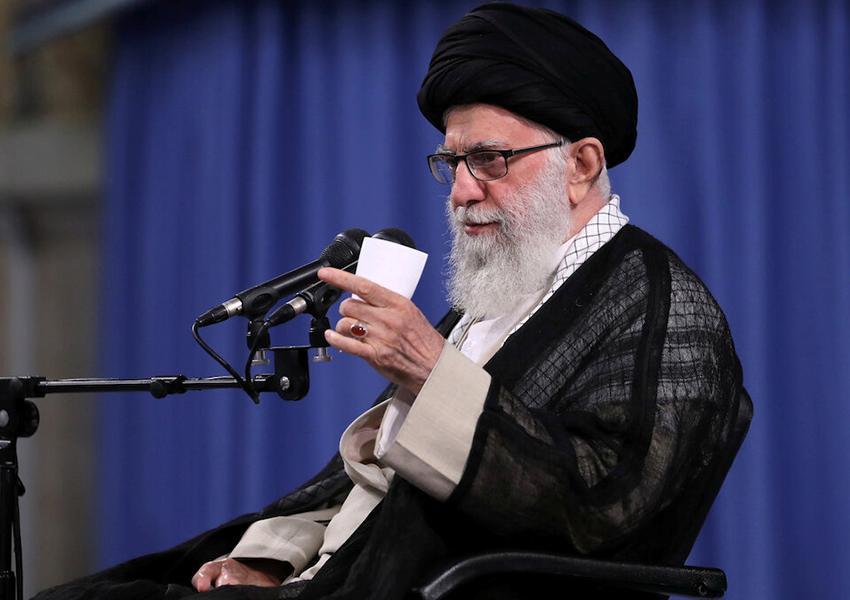
Iran's Khamenei Calls Publication Of Prophet Muhammad Cartoons An 'Unforgivable' Sin
Iran’s Supreme Leader, Ayatollah Ali Khamenei, has attacked as “unforgiveable” the French satirical magazine Charlie Hebdo for republishing cartoons satirizing the Prophet Muhammad, while French President Emmanuel Macron has reaffirmed France’s commitment to press freedom.
The offices of Charlie Hebdo were attacked in 2015 by jihadi gunmen who killed 12 of its employees, after the magazine published cartoons of the Prophet first printed in 2006 by the Danish newspaper Jyllands Posten. Charlie Hebdo republished them as the trial began last week of 14 alleged accomplices of the three gunmen shot dead in 2015 by French police.
Iran’s leader Ali Khamenei tweeted Tuesday 8 September that “the great and unforgiveable sin of the French magazine in insulting” the Prophet Muhammad revealed the “malice and hatred of Western political and cultural establishments against Islam and Muslim society.” Iran's foreign ministry had already condemned the publication of the cartoons on September 3.
Khamenei in his tweet repeated an argument often used by the Islamic Republic that Western standards of freedom of speech mask political goals, and that there was no reason not to prosecute the French publication.
In a second tweet Khamenei wrote: “The anti-Islamic policies of Zionists and arrogant powers are behind such actions.” He alleged that publishing the cartoons could be designed to divert the attention of West Asian nations from the “evil plans of the United States and the Zionist regime for this region.”
The original 2006 publication of the cartoons – which included one depicting Prophet Muhammad wearing a bomb-shaped turban – set off protests by Muslims around the world. Although the jihadists who attacked Charlie Hebdo in 2015 were Sunni militants opposed to Iran’s Shiite system, Iran’s clerical rulers have long sought to place themselves at the head of wider Muslim resentment against alleged sacrilege.
In February 1989, Iran’s then Supreme Leader Ayatollah Ruhollah Khomeini issued a fatwa ordering Muslims to kill Salman Rushdie, author of the novel The Satanic Verses. Rushdie went into hiding for nine years. While Iran’s government has said the fatwa is no longer supported, it has never been officially withdrawn.
Speaking on his visit to Lebanon, Macron said that while French citizens should a avoid a “dialogue of hate” it was not his role to judge the magazine’s decision: “It’s never the place of a president of the Republic to pass judgment on the editorial choice of a journalist or newsroom, never. Because we have freedom of the press.”
The French government, which is invariably forceful in defending both freedom of speech and France’s secular constitution, has yet to react directly to Khamenei’s tweet, but may regard as provocative his words calling the republication of the cartoons a “great sin.” France is one of five world powers seeking to maintain Iran’s 2015 nuclear agreement from which President Donald Trump withdrew the United States in 2018 before re-imposing sanctions against Tehran.








